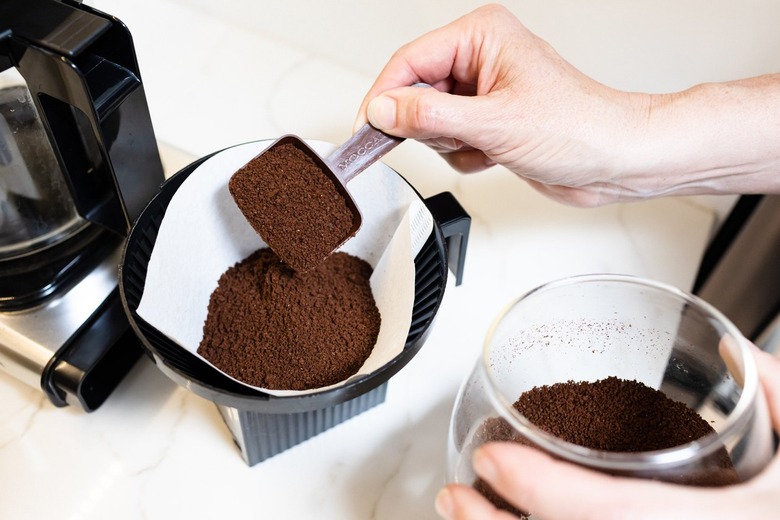Fertilizing Plants With Coffee Grounds And Eggshells: The Real Truth
Eggs and coffee: breakfast staples for many, yes? It's curious that the detritus from both these popular American breakfast items have a reputation for being great for your plants as well. (Word is, some houseplants love milk, too.) But are coffee grounds and eggshells actually good for your garden or houseplants? Not everything you read is true. Here's the real scoop.
Coffee Grounds for Plants
Coffee Grounds for Plants
It's not hard to find articles on the internet suggesting coffee grounds as a magic elixir for houseplants and gardens. Just pour on those used grounds and your plants will perk up and grow, they say. But some of this is simply attributing the stimulation you get from coffee to your leafy friends. Let's look at the claims one by one.
Coffee grounds as compost. If you have a compost bin in your kitchen or backyard, it's a great idea to toss your used coffee grounds into it. Composted coffee grounds add nitrogen to your compost pile and, ultimately, to your soil when the compost is mixed in.
Coffee grounds to make soil acidic. Lots of articles tell you to apply coffee grounds to the soil of acid-loving plants (like blueberries and tomatoes) to keep that soil acidic. This is only true if the grounds have not been used. Once you've made coffee from them, they are no longer acidic but turn neutral.
Coffee grounds as nitrogen-rich fertilizer. If putting coffee grounds in the compost makes the compost richer in nitrogen, it seems that putting those grounds right in your garden will add nitrogen too. But it doesn't work that way. Coffee grounds won't provide a burst of nitrogen to houseplants or garden plants immediately; they only produce nitrogen over time as they are composted.
Coffee grounds as fertilizer. Used coffee grounds may benefit plants in several ways. When you work them into the soil, they add organic content, improving its drainage, water retention, and aeration as well as attracting beneficial earthworms. On the other hand, the jury is out about whether the remaining caffeine can be plant-toxic to some veggies.
Eggshells for Plants
Eggshells for Plants
If you stop to think about eggshells, they do seem like one of nature's miracles: little, oval, watertight calcium containers produced by hens to hold their eggs. It's no wonder we gardeners stretch our imaginations to find uses for them, ranging from using empty shells to as seed-starting cups to adding crushed shells to the soil to increase calcium levels. Sadly, there's not a lot of science backing up these claims.
Eggshells deter snails and slugs. The claim is that crushed eggshells have sharp edges that, like diatomaceous earth, will deter crawling pests from eating your crop. Alas, this is one of many eggshell claims with little scientific backing. Many have posted photos on the internet of slugs and snails gliding right over eggshells without a backward glance. If you have a serious snail/slug issue, you may want to use diatomaceous earth, but if you don't, go ahead and give eggshells your own test drive. It won't hurt anything.
Eggshells in compost piles. Eggshells work just fine in compost piles. However, they don't break down very fast — in fact, big chunks of eggshells have been found in archeological digs — so you might want to run them through the blender before you add them to compost.
Eggshells as calcium-rich fertilizer. Eggshells are almost entirely made of calcium so, as they break down over time, they will increase the level of calcium in your soil. Note that most soil in this country has plenty of calcium so this may not materially assist the plants. Since eggshells lack nitrogen, phosphorus, and potassium, as well as other micro-nutrients that plants need in order to grow, you'll want to continue using regular fertilizers as well.
Eggshells as seed cups. For those who love the idea of planting seeds in eggshells filled with soil, this may be the unkindest cut of all. While a seed will germinate in soil in an eggshell, it can't live there very long. Seeds need enough soil to send down roots and an eggshell, though a cute plant container, is a very small one. What about the idea of using the eggshell as a biodegradable container for the seedling, placing it in the soil and allowing the shell to decompose? Remember what we said about eggshells being found in archeological digs. You'll need to remove the seedling from the eggshell to give it a fighting chance in the garden.
